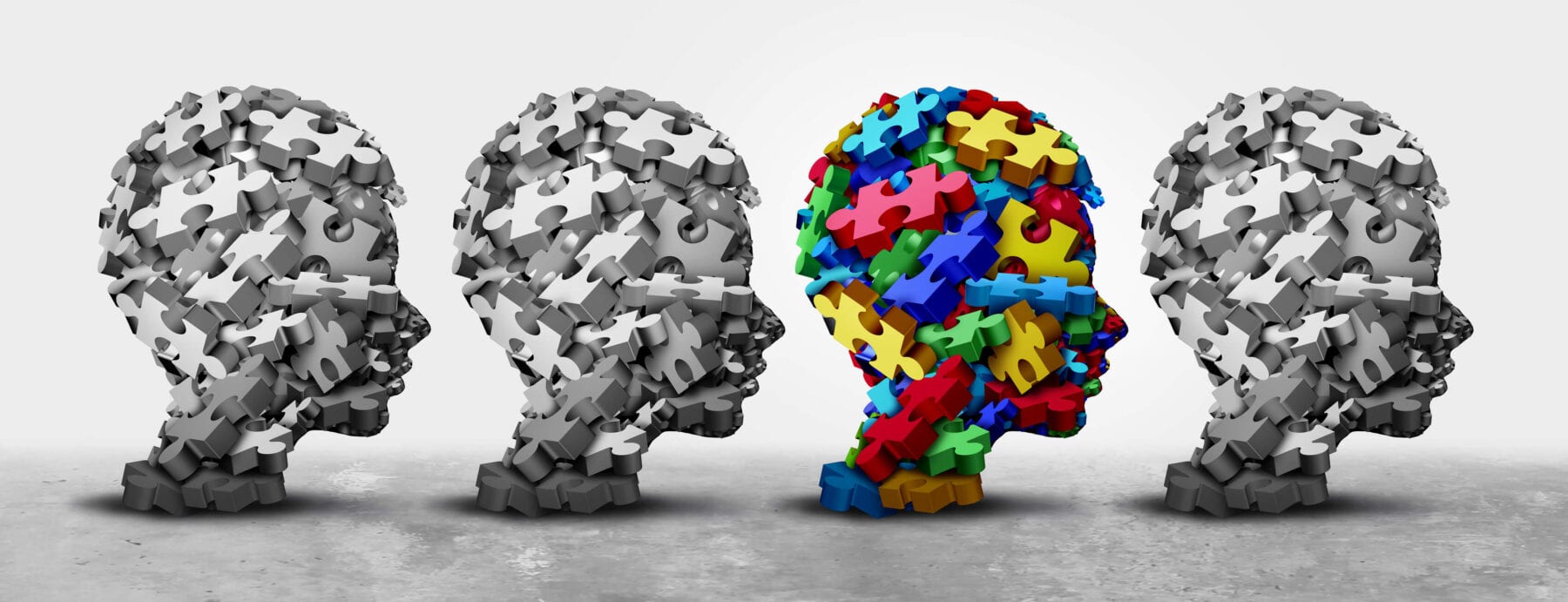
When you love someone with Autism, it's perfectly normal and natural to ask yourself, "What's it like to have autism?".
It's important to know that as hard as you try, you could never fully understand if you do not deal with it yourself.
While entirely relating is impossible, there are a few things to know that will help you appropriately communicate and connect to individuals with autism spectrum disorder.

The Struggles that Autistic Children Face
Autistic children can be a challenge for families and teachers. The adults and peers of autistic children must consider their unique struggles and exercise patience with them.
So what struggles do autistic children face in their day-to-day lives? One is anxiety. Autistic children often struggle to communicate with others and interpret social cues in the ways that others can. The inability to communicate both fuels anxiety effectively and prevents autistic children from expressing their anxiety to others to seek their help.
Here are a few examples of how anxiety may manifest itself in an autistic child:
- Social-centered phobias
- Excessive worry about or rumination on a topic
- Obsessive and compulsive behaviors
- Hyper-vigilance or shell shock
- Development of phobias
- Behaviors of avoidance
- Rigidity in routines or resistance to change
- Self-harm
- Controlling behaviors
- Defiance
- Meltdowns
- Shutdowns and refusal to speak or act
- Trouble with social skills
- sensory sensitivity
Autistic children often struggle with change as well. Familiarity is more comfortable, supposedly due to processing differences and anxieties.
Aside from the struggles stemming from their condition, autistic children must deal with other children who don’t understand them. This may lead to bullying, which people with developmental differences or disabilities tend to be especially susceptible to.

What it’s Like to Have Autism
You cannot truly understand and relate to a person with autism spectrum disorder unless you live with it yourself! However, attempting to do so can be beneficial for your development and allow you to better support the autistic individuals in your life.
1) Have you ever felt shy or uncomfortable around people? Know that an autistic child can feel that way all of the time. This is not due to a lack of effort; it is simply a result of the communication differences associated with Autism.
2) Do you prefer that things be a certain way? Or even feel anxious when they are not. For example, is a spice not in the rack, or is a book left on top of a bookshelf when there is an intended space for it? This is a discomfort that autistic individuals often grapple with in every aspect of their lives. The way they process is often not forgiving to change or disorder, and this may cause them to feel emotional and act out in a way they may not be able to control.
3) When you become angry or upset, do you sometimes find it hard to calm down and look at things logically? Imagine your brain working against you, inhibiting your ability to do so. This is a common struggle for autistic children and even adults.

Connecting to an Autistic Child
You may be wondering, how can you deal with an autistic child? Ask yourself what you can do to support them and make them comfortable. Here are some tips to help.
- Take Time to Learn Triggers - Children on the autism spectrum may be hypersensitive to sounds, touch, tastes, smells, light, or colors. Make sure to note when they seem uncomfortable. If the child is verbal, you can also ask them if things make them feel bad. You may also look into getting them clothing and shoes that are tailored to autistic children.
- Say What You Mean – Impaired communication skills are a common occurrence among individuals with Autism. It is essential to communicate in a way that is as clear and simple as possible, also calling out any specific emotional context to be considered with the statement. Be sure to allow extra time for the child to process if they need it.
- Monitor Your Reactions – Social skills can be a challenge when you are on the autism spectrum. When an autistic child says or does something hurtful or inappropriate, don't take it personally. Instead, gently approach them to explain why their behavior was unacceptable and how they should react.
How ABA Therapy Can Help with Your Autistic Child
What is ABA therapy ?
Applied behavioral analysis (ABA) is a type of therapy that can improve social, communication, and learning skills through positive reinforcement. This is often considered a top treatment option for autistic children.
ABA therapy is highly personalized, with a care plan built around assessing an autistic child's current abilities and opportunities for growth. This therapy does not focus on making the child more "normal" but instead emphasizes developing new, different skills and behaviors to improve the child's quality of life.
ABA therapy uses the environment to stimulate growth. This may involve rewards or the withholding of those rewards. These positive and negative reinforcements tend to be very successful with the differences in how an autistic child’s processing works, whereas “typical” social training such as scolding a child may not be.
ABA therapy is an excellent option if your child tends to be receptive to rewards as a motivation for positive behavior. Sessions with a qualified therapist can teach a child to replace behaviors like screaming with sitting quietly or using words to make requests. They can also conduct valuable life skills like brushing your teeth or shaking hands upon meeting a new person.

Conclusion
A typical person can never really know what it is like to have autism. However, you can try to empathise with your autistic child in order to understand them better.
Raising an autistic child is definitely hard work. However, the light and joy they will bring to your life is immeasurable.





